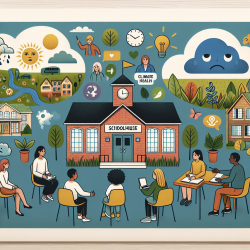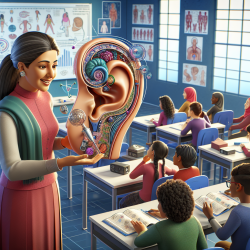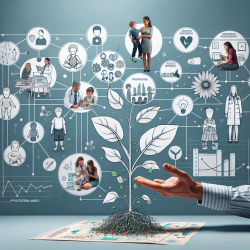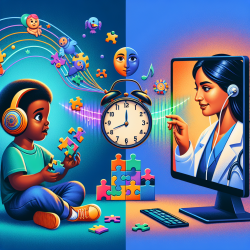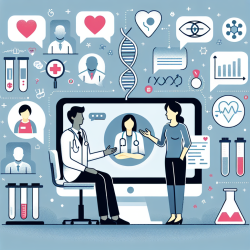The COVID-19 pandemic has had a profound impact on mental health across the globe, particularly affecting individuals with pre-existing conditions. For practitioners offering online therapy services through platforms like TinyEYE, understanding these impacts and how to address them is crucial. The research article "Psychotherapists’ Reports regarding the Impact of the COVID-19 Pandemic on Their Patients: A Cross-National Descriptive Study Based on the Social-Ecological Model (SEM)" provides valuable insights into these effects, using the Social-Ecological Model (SEM) to frame the findings.
Understanding the Social-Ecological Model (SEM)
The SEM is a framework that considers the interplay between individual, interpersonal, community, and public policy levels. This model helps us understand how various factors contribute to mental health outcomes. According to the study, the pandemic's impact can be categorized into four levels:
- Public Policy Level: Governmental mitigation efforts and their psychological impacts.
- Community/Society Level: Employment, access to educational and health facilities, and socioeconomic consequences.
- Interpersonal Level: Family dynamics, forced proximity, and concerns about loved ones.
- Individual Level: Personal fears, anxiety, and coping mechanisms.
Key Findings and Their Implications for Practitioners
The study reveals that maladaptive responses, such as increased anxiety and resistance to public health measures, were prevalent across all levels. However, adaptive responses, including compliance with health guidelines and finding new ways to connect with others, were also noted.
Public Policy Level
- Maladaptive Responses: Fear of government actions, resistance to mitigation efforts, and anxiety about police sanctions.
- Adaptive Responses: Acceptance of measures, factual discussions, and trust in governmental care.
Community/Society Level
- Maladaptive Responses: Job loss, homeschooling challenges, and media-induced fear.
- Adaptive Responses: Relief from performance pressure, seeking reliable information, and appreciating social security systems.
Interpersonal Level
- Maladaptive Responses: Family conflicts, domestic violence, and fear of infecting loved ones.
- Adaptive Responses: Increased family bonding, finding new ways to stay connected, and reduced interpersonal anxiety.
Individual Level
- Maladaptive Responses: Health-related fears, symptom aggravation, and loneliness.
- Adaptive Responses: Adaptation to new situations, viewing the pandemic as an opportunity for life changes, and experiencing calmness.
Implementing Research Insights in Online Therapy
Practitioners can leverage these findings to improve their therapeutic approaches. Here are some actionable steps:
- Personalized Interventions: Tailor interventions to address both maladaptive and adaptive responses specific to each level of the SEM.
- Focus on Resilience: Encourage adaptive responses by promoting resilience-building activities and coping strategies.
- Community Engagement: Foster a sense of community and social support through group therapy sessions and community resources.
- Policy Advocacy: Advocate for policies that support mental health and well-being, such as better access to mental health services and financial support.
Encouraging Further Research
While the study provides valuable insights, further research is needed to understand the long-term impacts of the pandemic on mental health. Practitioners are encouraged to contribute to ongoing research efforts and stay updated with the latest findings.
To read the original research paper, please follow this link: Psychotherapists’ Reports regarding the Impact of the COVID-19 Pandemic on Their Patients: A Cross-National Descriptive Study Based on the Social-Ecological Model (SEM).
